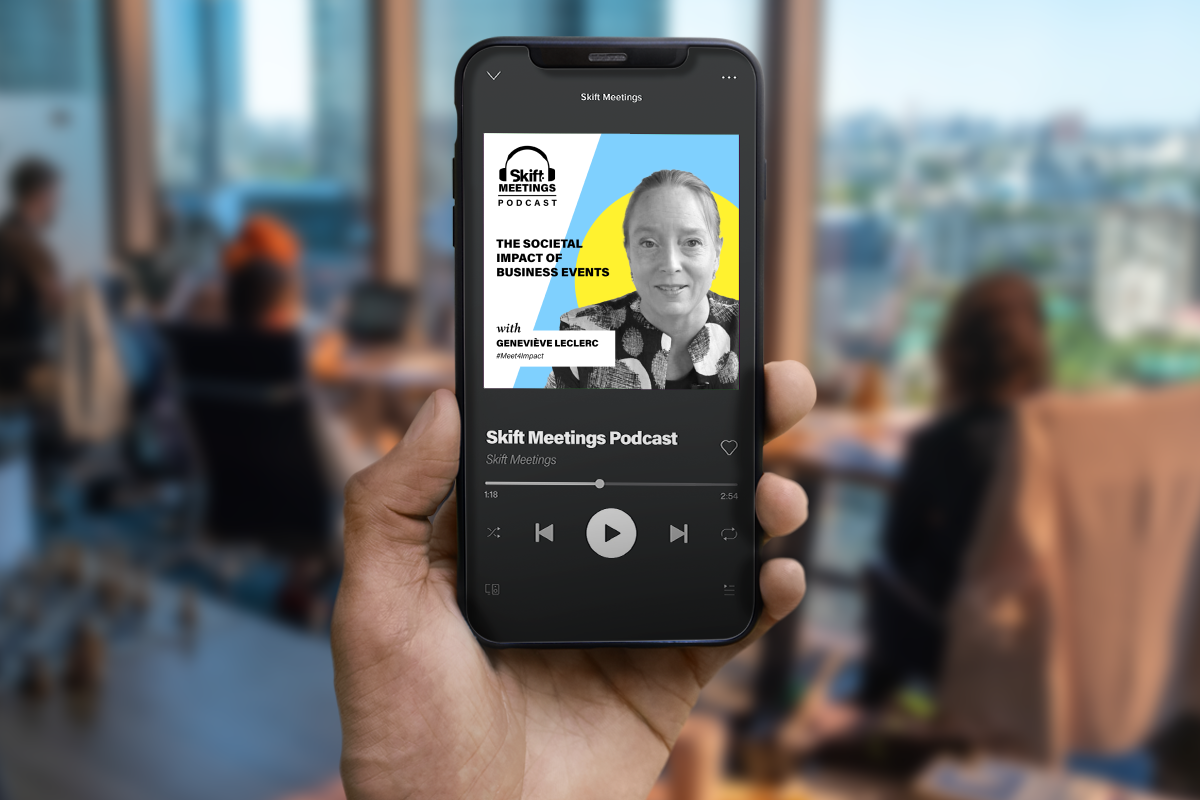Skift Take
Geneviève Leclerc, Co-Founder & CEO of #Meet4Impact, in a conversation about measuring the impact of business events.
Geneviève Leclerc is the co-founder & CEO of #Meet4Impact, a non-profit organization focused on planning, measuring, and discussing the impact of events. Like many event professionals, Leclerc didn’t intend to enter the events industry; instead, she trained as an anthropologist. However, her father worked with the Conservation of Nature World Congress, and she spent a summer working for a professional conference organizer, where she remained for 16 years. She became the director of the congress for The Transplantation Society before setting out on her own in 2017 and co-founding #Meet4Impact in 2019.
Subscribe to the Skift Meetings Podcast: Apple Podcasts | Spotify | Overcast | Pocket Casts | Google Podcasts | Amazon | RSS
Around six years ago, Leclerc started questioning the destination selection process for large events. She questioned why destinations with the greatest impact potential were often not selected. The destination selection process tended to focus on hygiene factors and infrastructure. This led Leclerc to think deeply about how destinations are chosen and what impact can be created at the selected destination.
Exploring Societal Impact
Societal impact includes anything that affects society and the planet. With this in mind, they created a framework that looks at eight categories of impact: natural; cultural; built; financial; political; human; social; intellectual. The impact of an event can change people’s lives, propel businesses to grow, affect community wellbeing, or help entire sectors develop.
Social innovation is solving old social problems with new ideas. Events may be educational and uplifting but can also solve social problems. This idea may seem new, but it has existed in social innovation for over 30 years.
Leclerc focuses on the Theory of Change, a framework and model used to develop a theory on how change is created. This can be implemented to allow an organization to intentionally and deliberately create an impact whilst also understanding how it was created, measuring it and reporting on it.
The Process of Measuring Impact
Understanding and measuring the impact of an event is important to organizations. However, if organizations fail to map out the impacts they aim to create, they cannot manage or measure them. The first step is to create a measurement strategy. Look at what may happen shortly after the event and what could happen a few months out. Next, consider what could happen in the longer term and how the impact of hosting this event could drive change. Having this understanding will make it possible to measure the impact effectively.
The stories that come from an event are crucial in understanding its impact in a qualitative way. Storytelling helps explain the how and the why behind the generated outcomes. This type of storytelling helps explain how the short-term KPIs and outcomes will help create long-term change. In essence, storytelling helps connect the dots, which puts the data in context and allows it to paint a picture.
Head to your favorite podcast service to hear more of this discussion and catch up on past episodes. Want to ensure you never miss a future episode? Hit subscribe, and you’ll be notified as each new episode is released.





